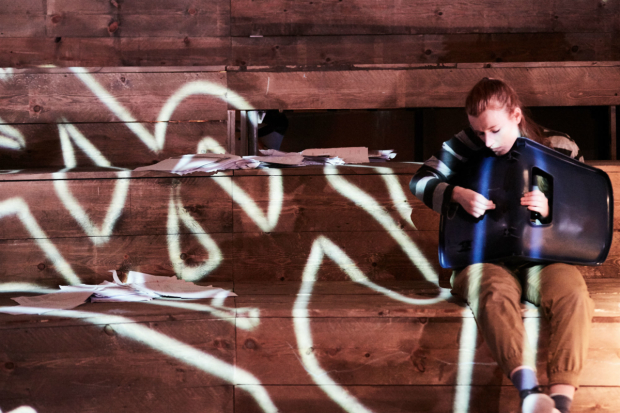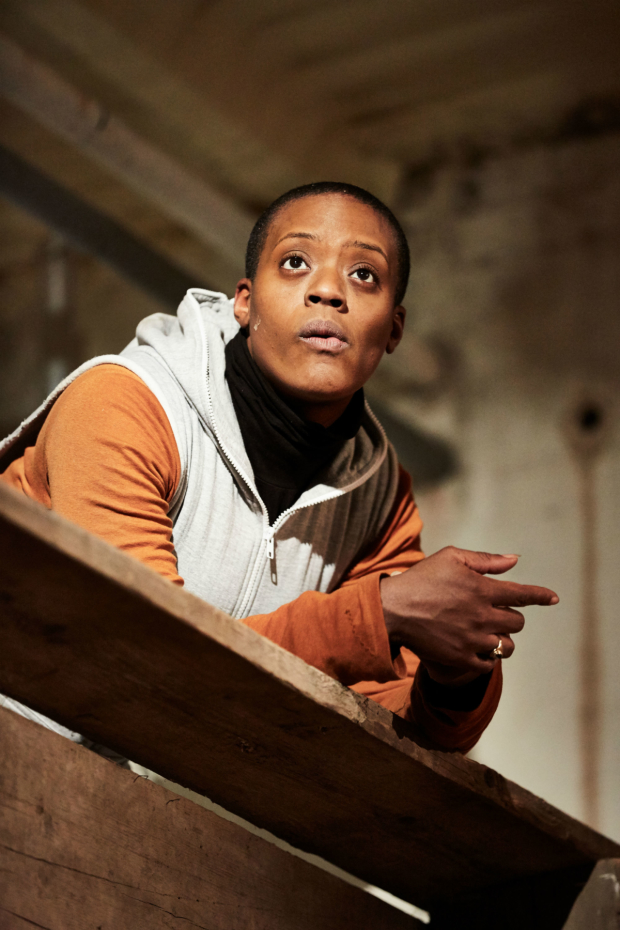Cressida Brown: It was a shock that our show became prime time news
The director explains how she came to creating a piece about the Beaumont estate in London, and why she’s revisiting the project ten years later

© Mark Douet
People often ask me how I ended up interviewing residents on the Beaumont estate ten years ago – an estate that had a notorious name for gang violence and was home to three dilapidated towers blocks, which at the height of their disrepair had more than 30 active crack houses among the 984 family households there.
The honest answer is that my being there was someone else's idea. In my Christmas holidays working on box office at the Tricycle Theatre and training as an actor at Central, I decided on a whim to direct an Edward Bond play on the Beaumont estate (an extremely violent one which I am now ashamed of suggesting). I had what I then thought was the original idea that I wanted to do it not in a theatre but an actual flat. Armed with an immense amount of naivety and optimism I headed to Waltham Forest Council to ask if they knew of any empty houses. The man at the council, Bill Parkinson, liked my idea but rightly said that Beaumont knew enough violence and I shouldn’t focus on that. If I really wanted to do something worthwhile I should interview the residents of the tower blocks that were being decanted and create a promenade play from their words that would take place around the towers. I decided then to halt the Bond play and use his suggestion.
I owe Bill Parkinson everything. This was the first play I ever directed and set up my life-long dedication to putting unheard voices on stage. My theatre company Offstage has always interviewed communities – whether Olympic swimmers, Thames watermen, or members of Birmingham library – and used these interviews as the backbone for a site-responsive play.

© Mark Douet
Exactly ten years later I have returned to find out what happened to the original residents I interviewed and whether the towers coming down was the new start the community had expected. The reaction to the towers coming down has been complex and varied and there are no easy answers. There is no doubt that the new low-rise Beaumont Estate is a lot safer and more attractive but one of the striking things in making this play has been how difficult it has been to find the original residents. They have almost entirely evaporated.
Ten years ago I was able to undertake hour long interviews in the community centre, across the generations. This time it has often ended up being a brief chat running along a street. We have tried to reflect this difference in the staging.
It was a shock how much attention the first Home received. What was essentially a small community theatre project, a tribute to the towers which had dominated the borough’s skyline for the last 50 years, became prime time news. In 2005 I never would have imagined the topic would be relevant ten years later, let alone the zeitgeist subject it has become – especially since Cameron’s recent announcement about the demolition of sink estates.
Such broad attention made for a totally mixed audience of community members and adventurous theatregoers. We look forward to repeating this with a large subsidy from L&Q to give former and current residents of Beaumont free tickets to the production.
This time the piece also questions my right as a middle class theatre maker to go into Beaumont and create a piece of theatre about their lives. Without giving too much away, Georgia Lowe‘s set magnificently questions who documentary theatre is for – and how do you make a sequel to a site specific play when the site doesn’t exist anymore?
I believe we have created something playful, genuine and surprising. My four actors – Waleed Akhtar, Hasan Dixon, T’Nia Miller, Rose Riley – play over 50 parts between them; and I know do justice to the tapestry of voices we have weaved together.
I have no doubt that when I return to Beaumont again in another 10 years’ time Beaumont and Leyton will have changed again completely.
__
by Cressida Brown
Re:Home runs at the Yard Theatre until 5 March.












